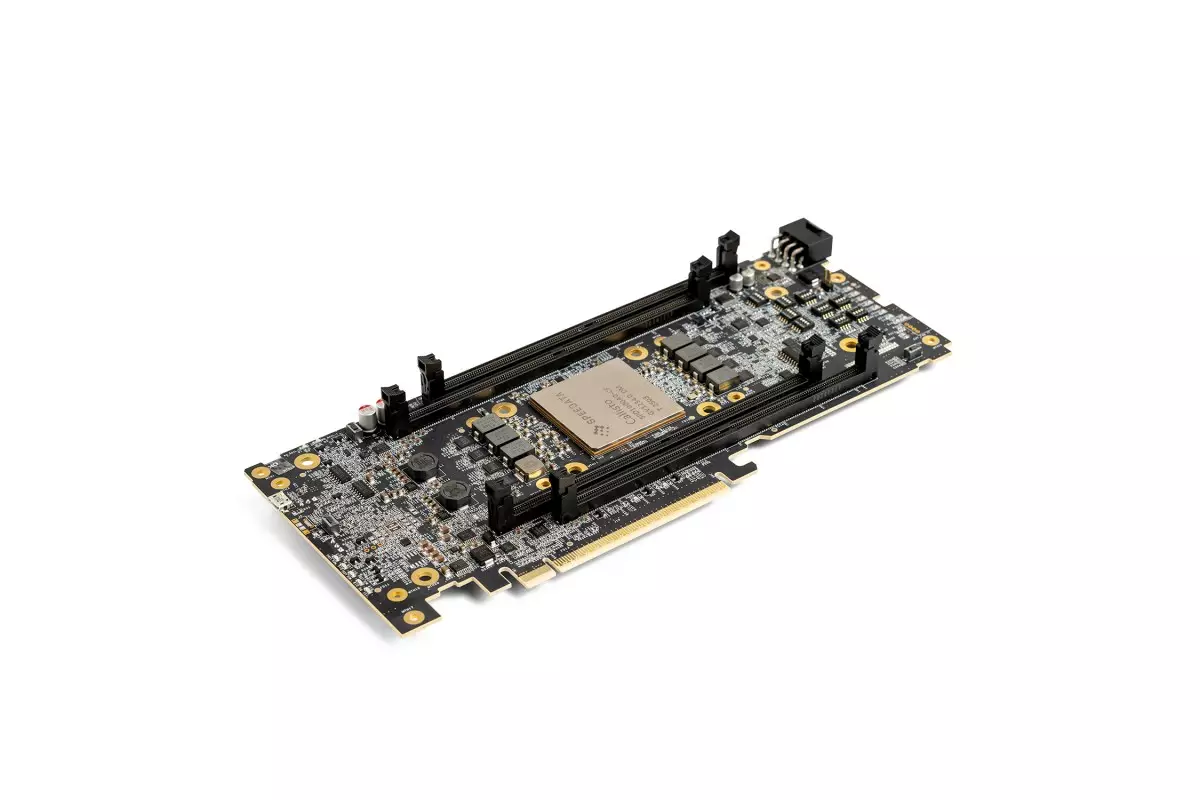In the bustling tech ecosystem of Tel Aviv, innovators are consistently redefining the boundaries of what’s possible in the digital age. One standout in this landscape is Speedata, a promising startup that is charting a novel course with its revolutionary analytics processing unit (APU). This precision-engineered technology is designed specifically for big data analytics and artificial intelligence (AI), delivering a seismic shift in performance metrics. Recently, Speedata secured an impressive $44 million in Series B funding, boosting its overall capital to a staggering $114 million. This capital influx, led by esteemed investors such as Walden Catalyst Ventures, 83North, and Koch Disruptive Technologies, highlights the growing significance of purpose-built solutions in an increasingly data-centric world.
A Shift from General Purpose to Specialized Solutions
One of the most striking aspects of Speedata’s approach is its recognition of the inefficiencies inherent in relying on general-purpose processors for data analytics. Historically, companies have leaned heavily on graphics processing units (GPUs), which were originally designed for rendering graphics but later adapted for AI and analytical tasks. However, as Speedata’s CEO, Adi Gelvan, eloquently articulates, GPUs are inherently built for different workloads and fall short when applied to the unique demands of data analytics. By focusing on creating a chip that is expressly designed for these tasks, Speedata is tackling fundamental performance bottlenecks at their source, promising unprecedented enhancements in processing capabilities.
The company’s APU architecture goes above and beyond current standards, offering the potential to supplant entire racks of servers with a single piece of hardware. Such a dramatic reduction not only significantly enhances processing speeds but also radically decreases operational costs associated with server maintenance and energy consumption.
A Visionary Team with Proven Expertise
Founded in 2019 by a collective of six visionary leaders, Speedata is backed by a team with deep roots in the field of silicon technology, including pioneers in Coarse-Grained Reconfigurable Architecture (CGRA). Their collective experience provides a robust foundation for tackling one of the industry’s longstanding dilemmas: the inefficiency of general-purpose processors in handling complex data workloads. Gelvan emphasizes this motivation: “We saw this as an opportunity to put our decades of research in silicon into transforming how the industry processes data.”
With a strategic focus on developing dedicated hardware that can execute intricate data analytics with remarkable speed, Speedata is set to disrupt the status quo. The APU not only promises efficiency but also embodies a directive to render data processing faster and more energy-efficient. This aligns with the broader industry shift towards sustainability and innovation in technology.
Targeting New Milestones in Data Analytics
Currently, Speedata’s APU is tailored for Apache Spark workloads, a staple within data engineering and analysis that presents unique challenges. However, the company has ambitious plans to expand its compatibility across all major data analytics platforms—a move that could solidify its position as a go-to solution for enterprises looking to optimize their data processes. Gelvan’s vision is clear: “We aim at becoming the standard processor for data processing.” Just as GPUs have established themselves as essential tools in AI training, Speedata aims for its APUs to gain similar recognition in the realm of data analytics.
Moreover, Speedata has been proactive in engaging prospective enterprise clients, with many already piloting its cutting-edge APU technology. Their official unveiling at Databricks’ Data & AI Summit is highly anticipated and is poised to capture significant attention from industry leaders.
Game-Changing Performance Metrics
The performance statistics surrounding Speedata’s APU portend a transformative shift for data processing capability. In one illustrative case, its APU achieved monumental efficiency, completing a pharmaceutical analysis that traditionally took 90 hours in just 19 minutes—a staggering 280-fold speed enhancement. Such data highlights not only the time-saving advantages but also the potential for organizations to make critical decisions faster and with greater accuracy, ultimately resulting in more informed strategies.
As Speedata continues to finalize the development and manufacturing of its first APU, the implications for market scale and growth are profound. The startup’s focus on building marketplace relationships and preparing for a wider rollout is a testament to its readiness to enter an increasingly competitive segment of the tech industry.
In a world where data is the new gold, Speedata’s commitment to create tailored solutions could very well reshape the landscape of data analytics, positioning itself at the forefront of this essential digital revolution.

